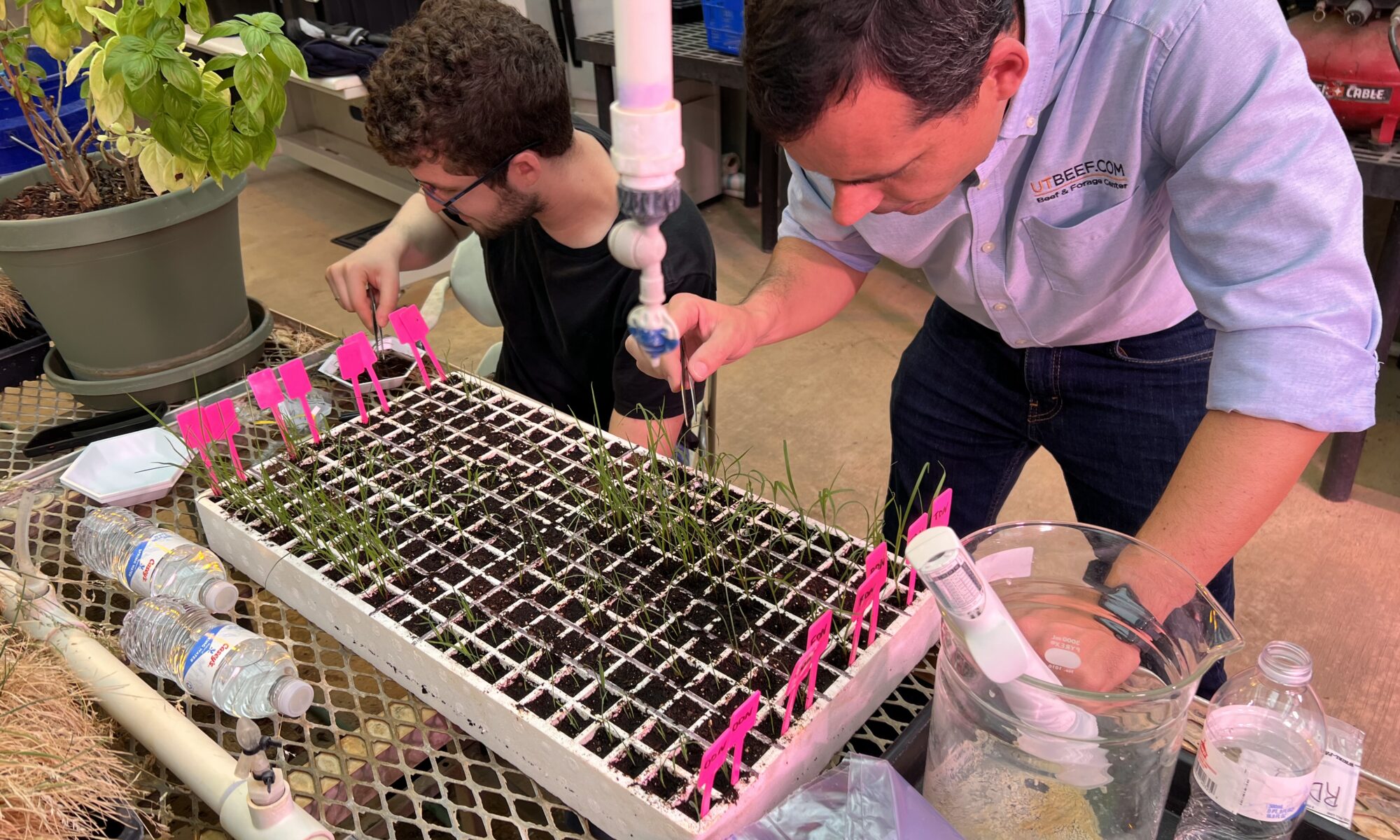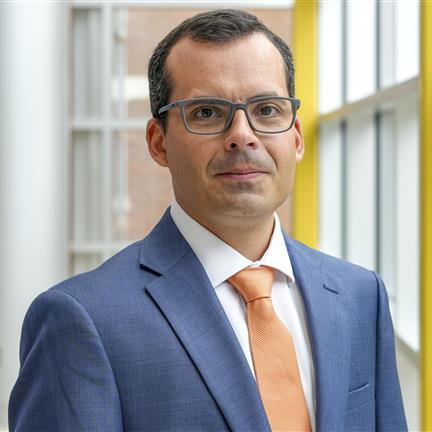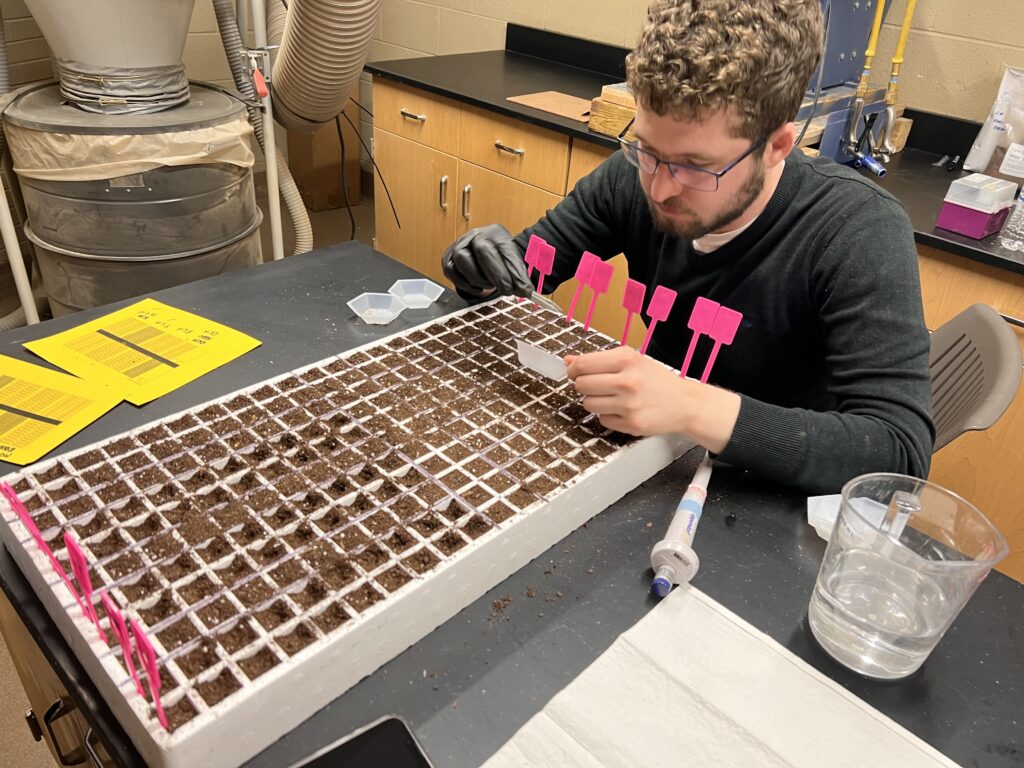

Dr. Bruno Pedreira
Associate Professor and Extension Forage Specialist
Department of Plant Sciences
Director, UT Beef & Forage Center
P: 865-974-3535
In recent years, the search for efficiency in forage-based systems has intensified, especially driven by the need to increase productivity and reduce environmental impacts of animal agriculture. However, synthetic N is the costliest input in the forage production system, many times cutting into profit. A prominent strategy in reducing the dependence on fossil fuels for nitrogen (N) is the use of plant growth-promoting bacteria (i.e., Azospirillum spp.), which have become an important practice in regions across the world, but not well explored by farmers in the U.S.
In the fescue belt of the United States, a region encompassing over 20 million acres of pasture, comprehensive information on the benefits, management, and strategic implementation of plant growth-promoting bacteria remains limited. To deeper explore this in Tennessee, we welcomed Gabriel Guimaraes Silva, a Ph.D. student from the State University of Londrina, Brazil. Gabriel worked for 11 months at the Beef & Forage Center contributing to the implementation of innovative N input strategies that can significantly improve the sustainability of forage systems. These strategies allow for the maintenance of forage production through renewable sources of N. The efficacy of these bacterial inoculants has already demonstrated their ability to provide an equivalent of 20 to 58 units of nitrogen.

Gabriel’s greenhouse trials demonstrated that tall fescue and teff grass were the most responsive to the inoculants. Depending on the product used, tall fescue biomass increased by 40 to 60%, and root mass increased by 4 to 38% within the first few weeks after planting. These improvements can significantly aid in pasture establishment and enhance forage production. We will continue these trials to provide more robust data in the near future. Stay tuned!